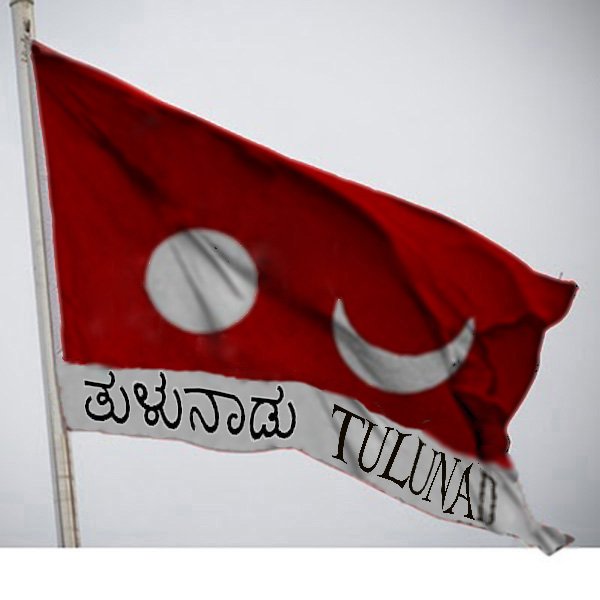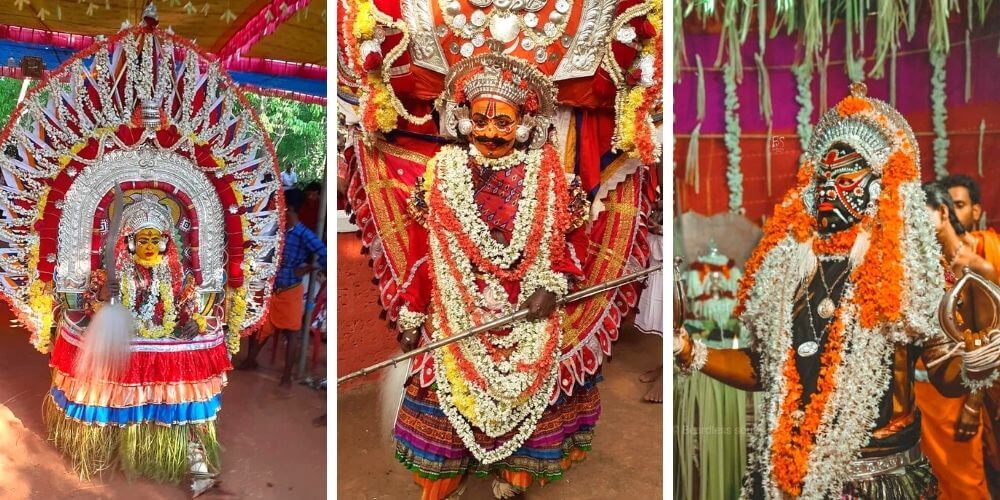While a Language War is brewing in Karnataka over the Hindi Imposition by the central government another language is finding its identity. Tula just like Kannada is a native language of the coastal Karnataka region. Like the Kannadigas, the Tulunad community seeks recognition and looks to protect their language. But the issue of the oppressed being the oppressors might be coming into the picture.

Source: X.com
Full Story:
A group of around 20 men, dressed in a white shirt and trousers, carrying placards and wrapped in maroon shawls — unlike the recognizable green representing pro-farmer, or saffron usually associated with pro-Hindutva, or blue standing for Dalit identity — landed at the Uddupi District Collector’s office. Unhappy with the alienation received at the hands of their own state government that has issued a gazette notification establishing Kannada dominance, the Tulunad activists are reigniting a decades-old demand for greater recognition of their culture and the Tulu language that’s predominantly spoken in the coastal districts of Karnataka.
The Congress-led Siddaramaiah government made it mandatory for business establishments to ensure that at least 60 percent of the text on their signboards is in Kannada and finds space on the upper half of the board. This has angered the Tuluvas who now demand that at least 30 percent of any signboard in the state be in Tulu, 50 percent in Kannada, and the remaining 20 percent in any other language. “Tulu groups warned Kannada groups against suppressing Tulu rights by building Kannada-centric organizations in Tulunad with the help of local Tuluvas. The tactics used by Kannada groups resemble the tactics used by Britishers to suppress Indians with the help of Indians,” said a post on X.

Source: Coastaldigest.com
The Kannada-Tulu bitterness is showing up in the southern state and it goes beyond just signboards. The calls to stop the imposition of Kananda come even as the Siddaramaiah government continues to target BJP and PM Modi for imposing Hindi on non-Hindi-speaking states. Social media sentiment shows the demands for a separate state that had died down with the reorganization exercise in 1956 are gaining a new lease of life. From plans of publishing an abridged version of ‘Ancient Karnataka history of Tuluvas’ to defending Aishwarya Rai Bachchan against remarks made by Rahul Gandhi, and running a museum with thousands of tools and household items collected from traditional Tuluva homes, the Tuluvas have decided to take the identity fight to a new plain and ‘recognition’ seems to be their keyword.
Tulu: History of the Language.
Tulu is the primary spoken language in Tulu Nadu, consisting of the Dakshina Kannada and Udupi districts in the western part of Karnataka and the northern part of the Kasaragod district of Kerala. A significant number of native Tulu speakers are found in Kalasa and Mudigere taluks of Chikkamagaluru district and Tirthahalli, Hosanagar of Shimoga district. Non-native speakers of Tulu include those who are residents in the Tulunadu region but who speak the Beary language, the Havyaka language, and also Konkani and Koraga as their mother tongues. Apart from Tulu Nadu, a significant emigrant population of Tulu speakers is found in Maharashtra, Bangalore, Chennai, the English-speaking world, and the Gulf countries.

Source: Stories By Soumya
Found largely in Karnataka, it is spoken primarily within the Indian state. Dating back several hundred years, the language has developed numerous defining qualities. The Tulu people follow a saying that promotes leaving negative situations and finding newer, more positive ones. The language, however, is not as popular as others which means it could become endangered and extinct very soon. The influence of other mainstream languages is a present danger for the Tulu language. Today, it is spoken by nearly 1.8 million people around the globe. Large parts of the language are altered and changed constantly because it is commonly passed down through oral tradition. Oral traditions within Tulu have meant that certain phrases have not always maintained the same meaning or importance.



















































































